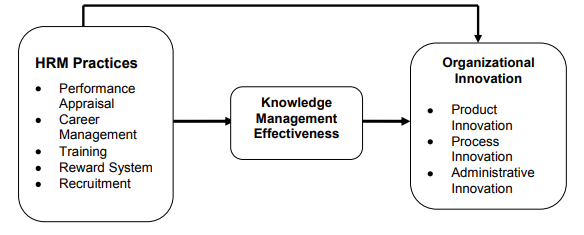A Psychological Study of the Efficiency of Knowledge Management in the Management of Human Resources Influenced by the Mediating Factor
Main Article Content
Abstract
Organizational innovation has long been known as a comparative advantage in tomorrow's irritable environment. New goods and procedures must be developed by Indonesian manufacturing enterprises if they want to transition from using only physical labour to a knowledgeable and experienced financial model. Good HRM overall organisational practises can support organisational innovation. Investigated was how various aspects of HRM (such as assessing performance, talent management, learning, deployment of compensation software, and acquisition) affected innovativeness (product innovation, process innovation, and administrative innovation). The study examines the role that good knowledge management played in closing the gap. The study used information from well-known manufacturers. According to regression analysis, HRM practises frequently foster organisational innovation. Three different types of training are related to organisational innovation (product innovation, process innovation, and administrative innovation). Performance evaluation helps administrative innovation. According to the study, there is a connection between successful information management training and evaluation. Intellectual capital ties review and organisational innovation together inexorably.

